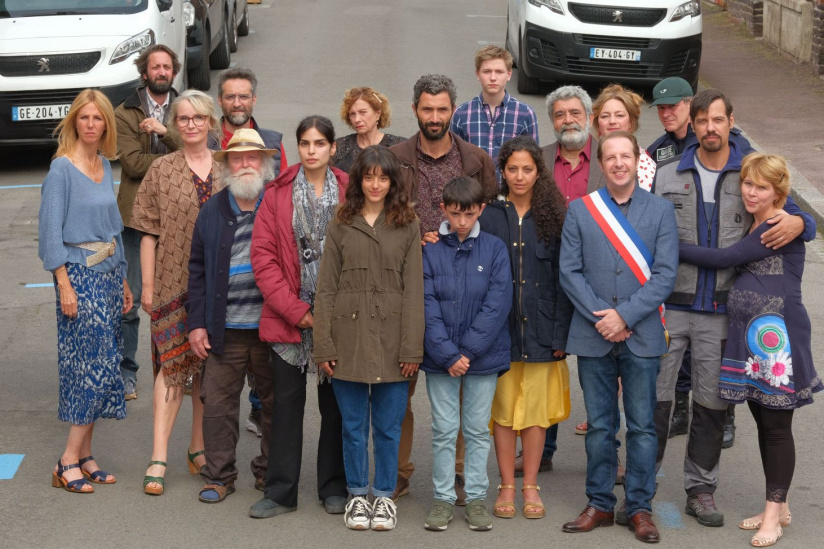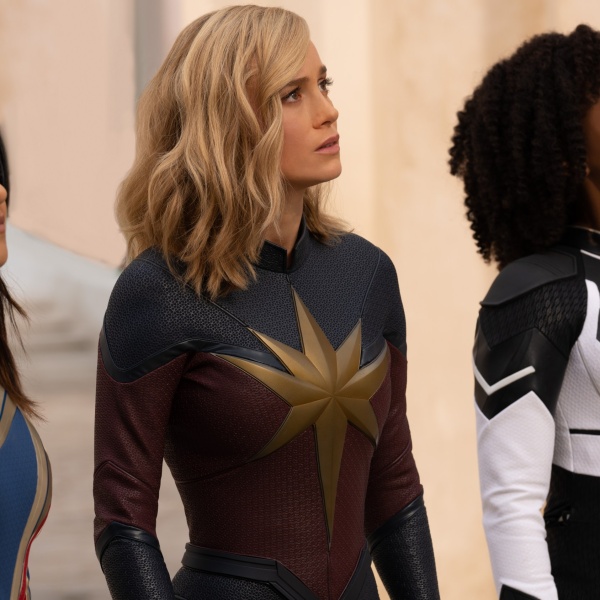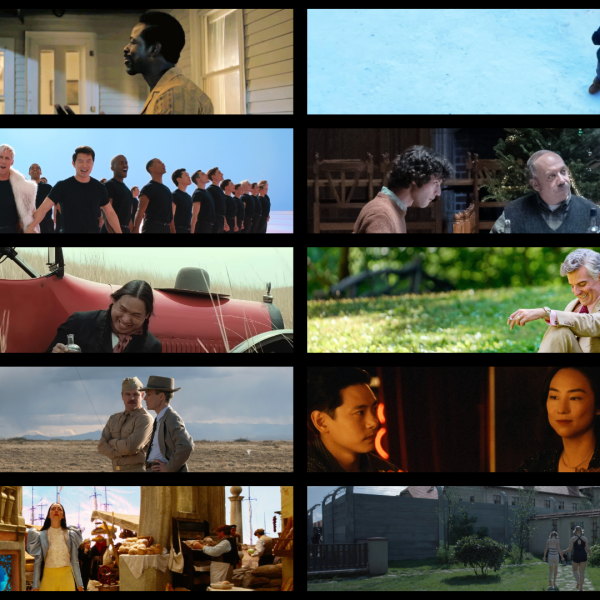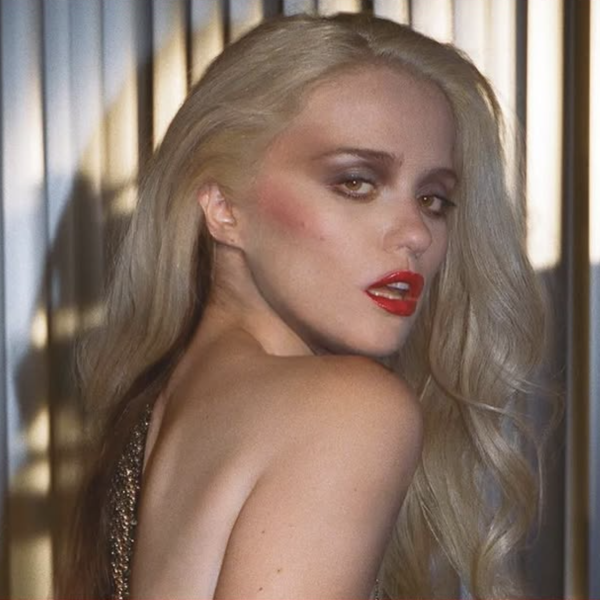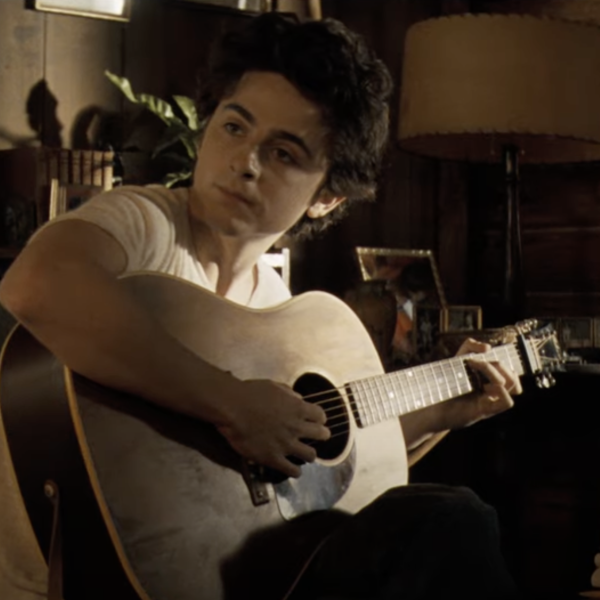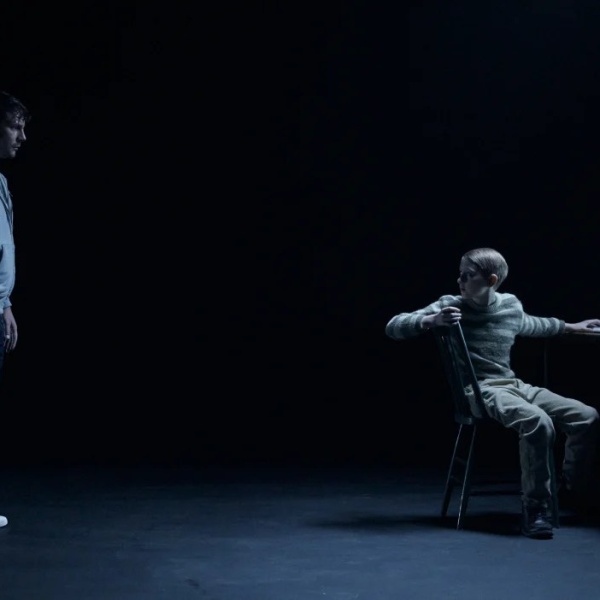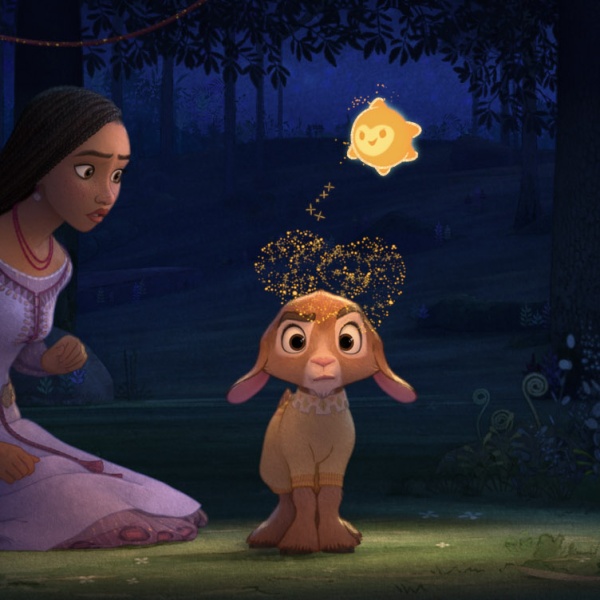Everyone in the small French village of Paimpont is so excited — ah, well, not everyone, but you know how hard it can be to get people to agree on things! c’est la vie! — because they’re about to prove just how open-minded and caring and big-hearted they truly are. How, you may ask? By welcoming a family of Ukrainian refugees into their little Breton slice of heaven (as long as you avoid the bad employment numbers and the drinking and latent depression and simmering racism, and and and…). Isn’t whatever they’re going through just atrocious? And wouldn’t moving to Paimpont — where, again, everyone is so excited! — just make everyone and everything feel just that much better?
Too bad then for un petit problem on the way to all that altruism: turns out, as one character in the sprawling ensemble that is Julie Delpy’s “The Barbarians” tells it, “Ukrainians are in high demand on the refugee market,” and “there are none left” because “all of Europe welcomed them.” What about a replacement family, perhaps? Some other refugees? From, how do you say, Syria? Even in sleepy Paimpont, self-congratulatory acts of service appear to have their limit. As the village readies to receive — and maybe even actually welcome — the Fayad family, “The Barbarians” has a natty time poking both fun and at some serious wounds.
Delpy, whose directing career has swung between darker dramas (like her last TIFF effort, the heartbreaking “My Zoe”) and punchy comedies of manners (like her “Two Days in New York,” “Two Days in Paris,” and “Lolo”), ably braids those two tones together here. Added bonus: a dash of some delightful mockumentary hi-jinks (shades of “Skylab”!), as a pair of local TV types mill about, capturing the people of Paimpont and the bewildered Fayads in various states, most of them confessional, all of them revelatory.
Delpy — who also write the film alongside Lea Domeneh, Matthieu Rumani, and Nicolas Slomka — leads the large, very talented cast as local teacher Joelle, who initially spearheaded the push to bring the Ukrainians to her town and scrambles to ensure the Fayads are welcomed instead. Joelle, for all her good works, has a touch of self-importance to her too, blithely telling the TV crew about her deep affection for refugees, as instilled in her after a perhaps too-early viewing of “Night and Fog.”
Assisted by the documentary conceit, we soon meet a number of Joelle’s friends and neighbors: her best pal Anne (Sandrine Kiberlain), Anne’s wimpy husband Philippe (Mathieu Demy), local farmer Yves (Delpy’s own dad, Albert), pregnant nurse Geraldine (India Hair), her combative husband Herve (Laurent Lafitte), shift mayor Sebastien (Jean-Charles Chilet), and many more. All of them offer their own take on what the arrival of the Syrian family means to them — some are open and curious, others try to act as if “Arab” isn’t a slur, still more worry the Fayads won’t buy their wine or pork sausage, the full gamut — and we’re already both worried and excited for the Fayads to be thrown into this milieu.
The multi-generational group that shows up floors everyone, even Joelle. Whatever they were expected, it wasn’t the Fayads, a lovely, somewhat shy group of people who arrive in Paimpont as they’re literally yanking down the Ukrainian flag and trying to hide a portrait of Zelensky. The Fayads, including patriarch Marwan (Ziad Bakri) and his wife Louna (Dalia Naous) are just as wary of the French villagers as they are of them — they’re certainly dubious of their damn crepes — but they also display a genuinely open spirit. They’re happy to be in Paimpont and they desperately want to contribute to the good of the town, even as they are constantly batted between being infantilized (Anne showing them all their various kinds of butter is an achingly funny bit) and outright discriminated against (turns out, Herve’s early resistance is symptom of something far worse).
Some lines are drawn early — like the ratcheting-up vandalism that seems to, wouldn’t you know it, plague only the Fayads’ house — while others emerge as their arrival in the town unexpectedly opens up old worries and wounds. Along the way, Delpy steadily weaves her good humor with deeper and darker explorations. “Meet the Barbarians” is wonderfully funny and fleet on its feet, but that comedy also serves to slyly push us into more pressing questions. What is a good person? How do we see ourselves? How do we see others? What does it mean to be part of a community? And, of course, who are the real barbarians here?
A bigger division takes hold when the Fayads tell their story — complete with shocking and heartbreaking videos — to some of the townspeople, while others sit out. By then, another film would have shifted firmly into more dramatic territory, but Delpy still finds a sense of play and fun, and yes, the joy of the human spirit in what unfolds in Paimpont and amongst its disparate citizens. Part comedy of manners, part human drama, part mockumentary about the insanity of trying to flatten human characters into digestible bits, all of “Meet the Barbarians” is enjoyable and fresh, an actually new entry into a growing body of films that attempt to humanize our most modern tragedies. Laughing helps. Crying does, too.
Grade: B
“Meet the Barbarians” premiered at the 2024 Toronto International Film Festival. It is currently seeking U.S. distribution.
Want to stay up to date on IndieWire’s film reviews and critical thoughts? Subscribe here to our newly launched newsletter, In Review by David Ehrlich, in which our Chief Film Critic and Head Reviews Editor rounds up the best reviews, streaming picks, and offers some new musings, all only available to subscribers.
